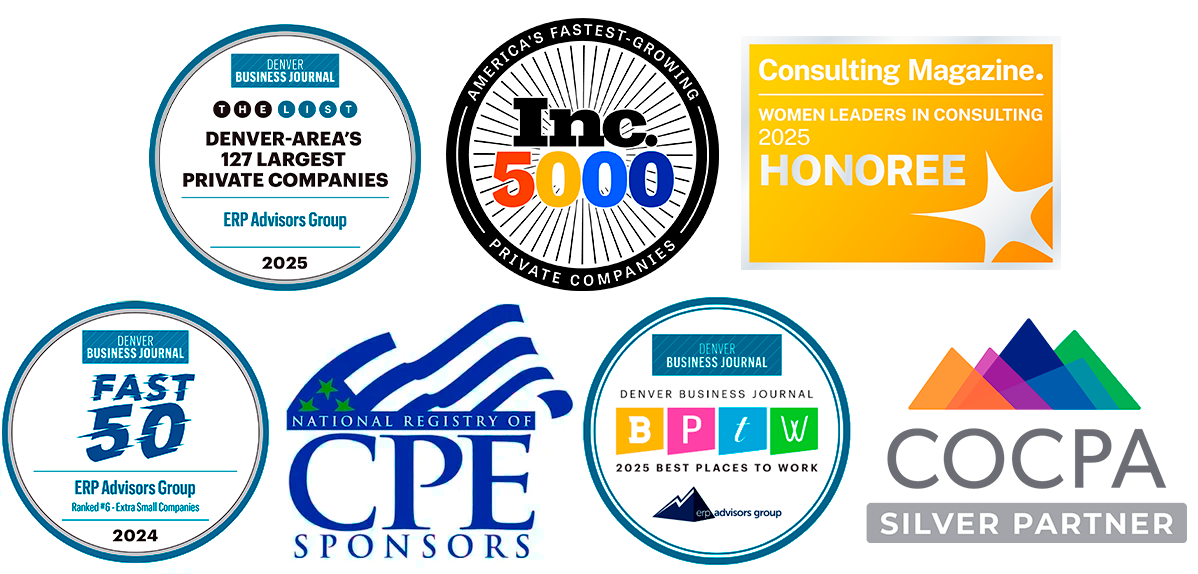
Selecting a field service-specific application is complicated, with many businesses considering themselves part of another, larger industry segment and lacking an understanding of how their unique requirements play into selecting software. As a result, field service companies often settle for the wrong solution and face obstacles that could have been avoided had they implemented the proper functionality. Field services require high-level automation for estimating, quoting, work orders, and much more, making it difficult to simply “identify” the right application, not to mention determining the correct software, third-party add-ons, and implementation partner. In this episode of The ERP Advisor, Shawn Windle will uncover the most important factors to consider when selecting software for your field services company.
How to Identify the Best Solutions for Your Field Services Company
Introduction
Field Service companies often group themselves into a larger industry segment, making it difficult to select the right ERP to meet their needs across varying requirements. These companies often need strong connectivity and visibility to keep up with their staff working in the field. Because of their unique requirements and historically complex implementations, it is helpful for these companies to have expert guidance when selecting a field service ERP.
Driving Factors for Field Service Companies to Change their ERP
Growth is one of the greatest factors leading field service companies to consider upgrading their ERPs. As companies develop more complex field service requirements, their demand for a new ERP will become more apparent. With more complex requirements, field services companies will struggle to effectively manage staff with manual processes and outdated software leading to complications in accounting for their services. Many companies know it is time when they can no longer manage their processes or meet their requirements within a system. However, field service companies should wait to invest in a new ERP until it is absolutely necessary for future growth and production. If your current system inhibits your business’s ability to grow, it is likely time for a new ERP.
The Greatest Risk and Important Factors When Upgrading
One of the greatest risks to field service companies when selecting a new ERP is biting off more than they can chew. These companies tend to enter an upgrade expecting the system to provide functionality to meet all of their needs immediately at go-live. The unique aspect of a field services solution implementation is that it does not affect a single department of the business, but extends beyond to the leadership team, accounting staff, field service providers, and other employees of the company, ultimately impacting the customers and their ability to deliver value. To combat this common challenge, field service companies should start with the minimum viable product (MVP) when selecting the right solution. In this case, the business should identify the minimum functionality they need to improve operations prior to confronting the implementation. This may be only basic financial requirements or the implementation of a field services module, but either way, the company can ensure they do not purchase more functionality than necessary. A reserved approach will help mitigate the risks associated with taking on too much during the upgrade. From there, the field services company can roll out each succeeding strategic module to automate more of their business.
Types of Solutions that Work Well for Field Services
Field service companies should identify where their staff is doing most of their work when selecting the right ERP. Location and services play a major role in the type of system that will meet the needs of a field services company. For example, field service companies who often work in urban areas will have different requirements than those who predominantly work in rural settings. Their requirements also change depending on their services, such as a company that services wind turbines versus one that works on HVAC systems. Functionality needs can include internet access versus offline access, technology for tracking workers and geospatial capabilities, enterprise asset management functionality, and other specialized field service management tools. Larger companies may require more specialized tools for tracking their services while others may only require very basic functionality added to their pre-existing ERP solution. By identifying and understanding their needs, these companies can better steer their selection.
Field service companies should only consider an upgrade if the functionality is not available in their current system, and it is inhibiting their growth. If their current or legacy ERP software does not provide the capabilities or bandwidth to develop capabilities for their field services, then they should look for a new solution. By focusing on the necessities and deploying only the minimum viable product at the start, field services companies set themselves up for a successful ERP upgrade from the start.
Solutions for Field Service Companies
Tier-one software solutions offer strong field service capabilities and solutions for larger enterprises. However, SMBs often don’t need the robust functionality offered in these solutions and should look at tier two and three applications to meet their needs. Additionally, there are great third-party solutions available on the market to meet very specific field service requirements. Ultimately, field service companies should evaluate solutions that address the firm’s needs and look to those solutions used by competitors in their industry. This provides a baseline for a selection and eases their initial burden in the process.
Conclusion
Whether it’s a field services module or a completely new ERP, field service companies should start with the minimum viable product (MVP) to minimize risk when confronting an ERP software upgrade. Once the basics are in place, the company can optimize its system where necessary to continue providing value to the business and customers. If you are a field services company that needs guidance in confronting an ERP upgrade, schedule a free consultation today.

.png)



